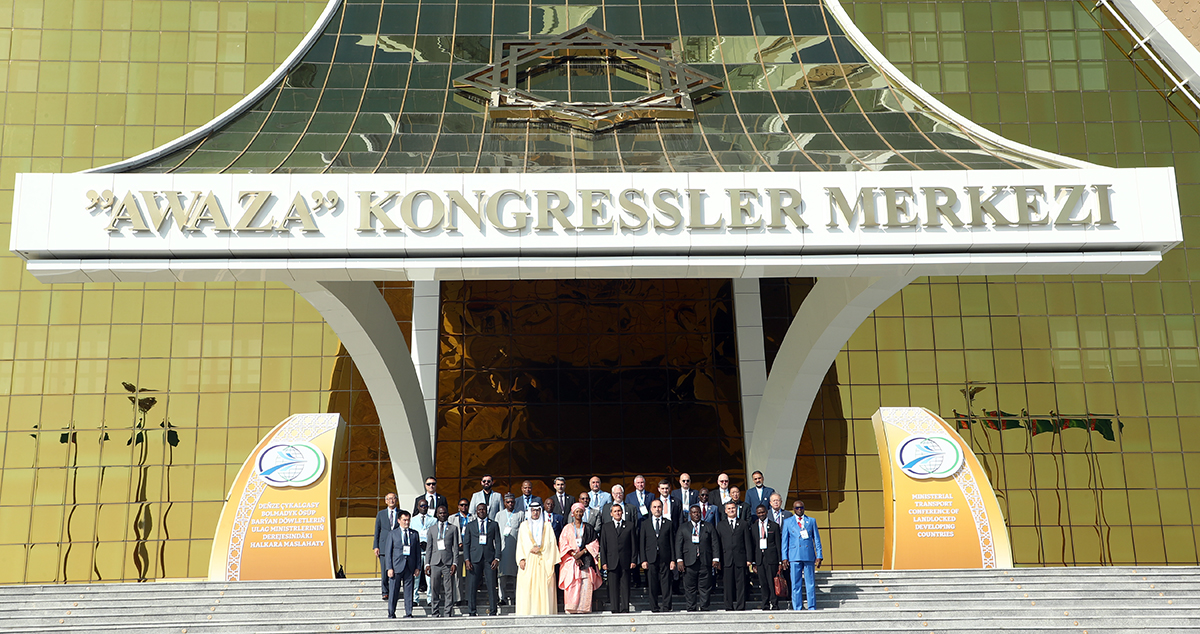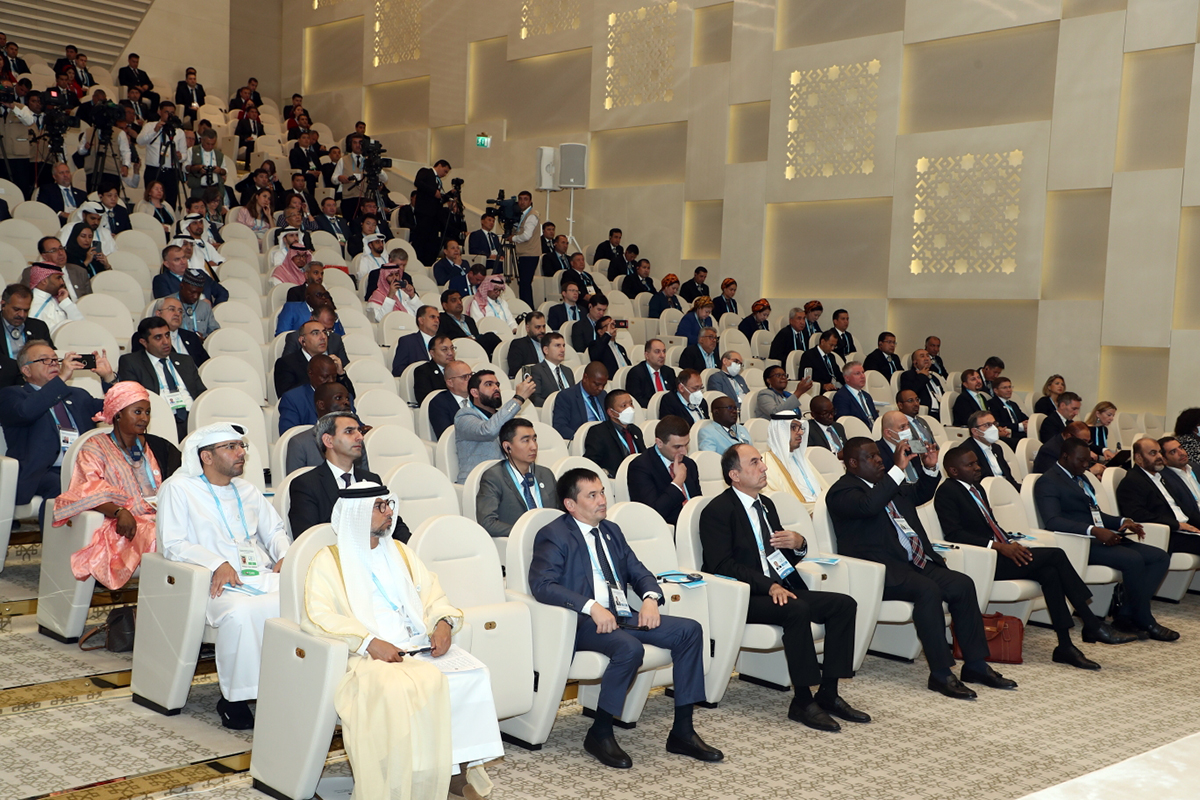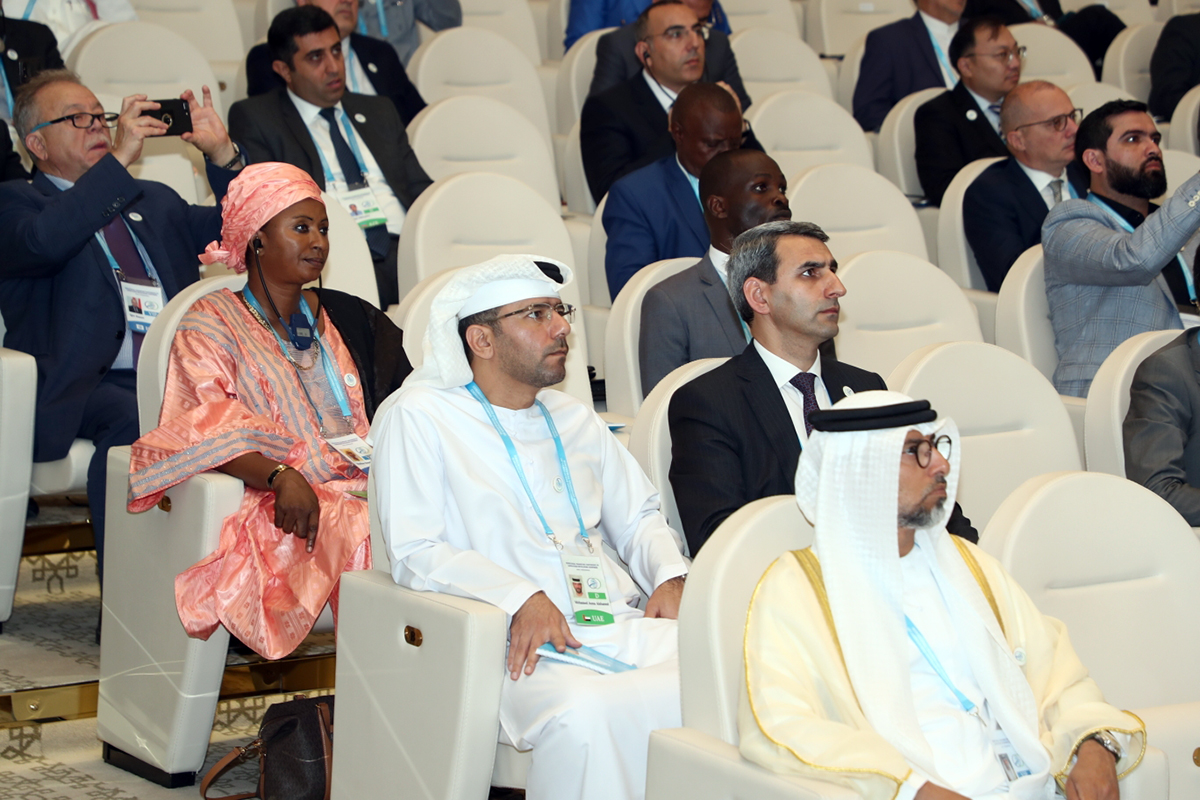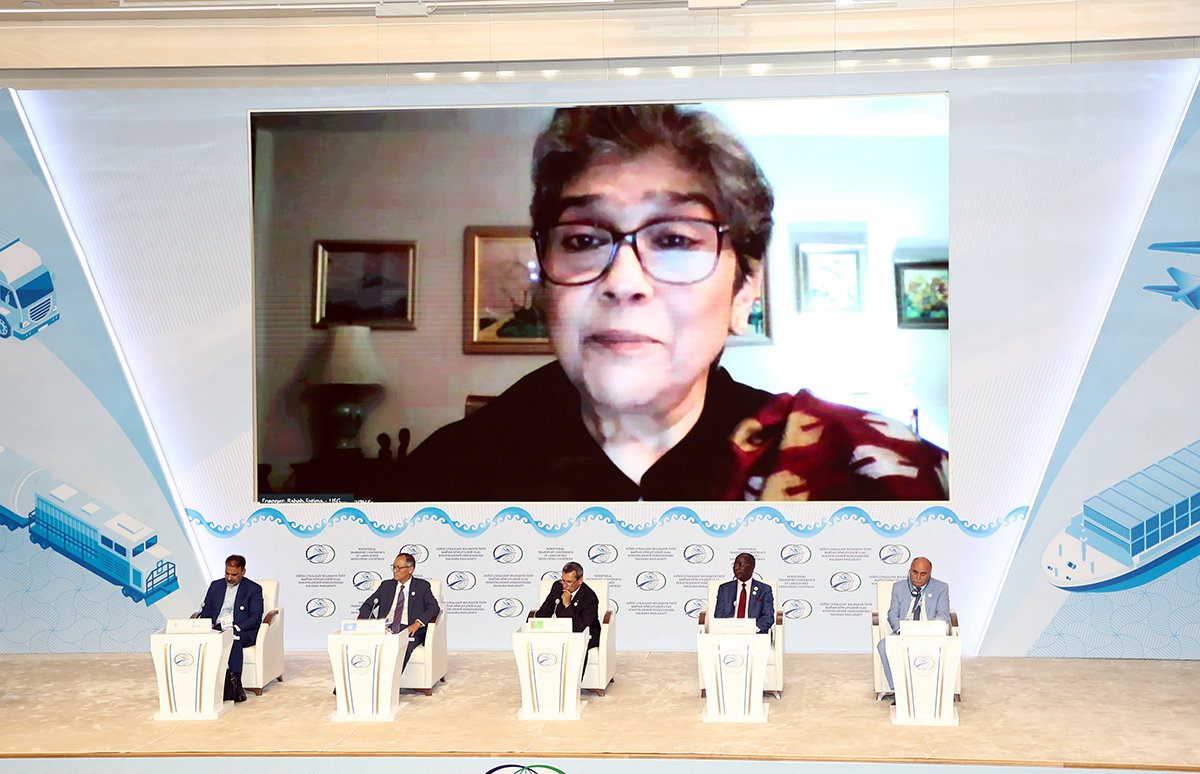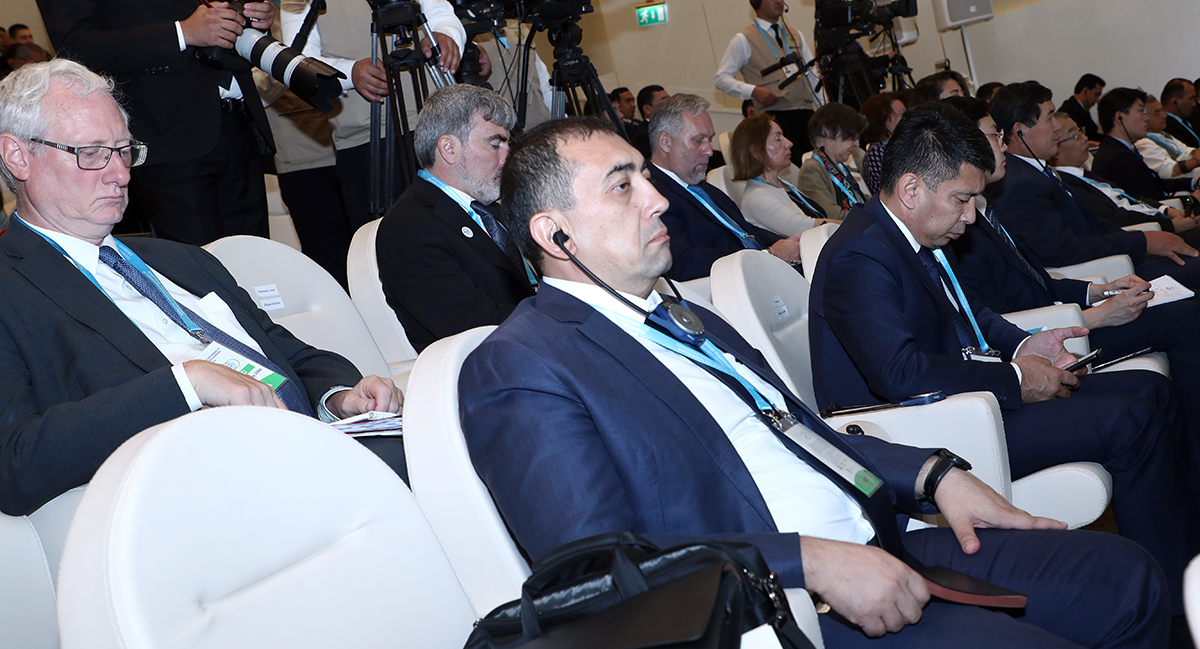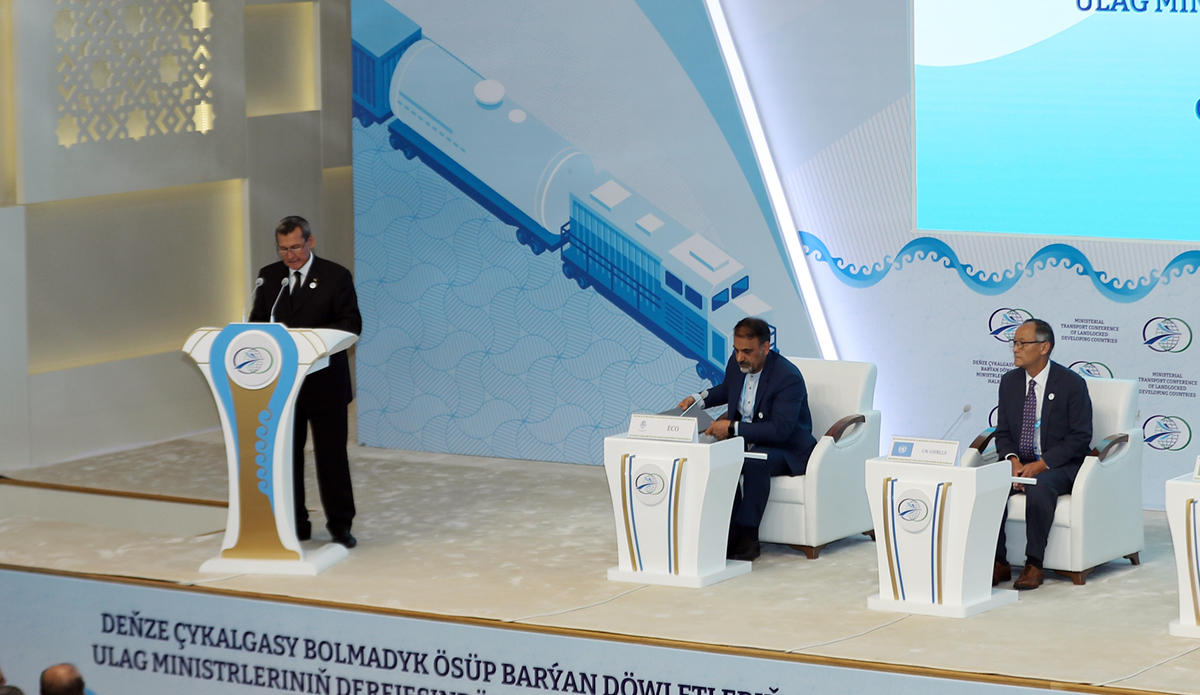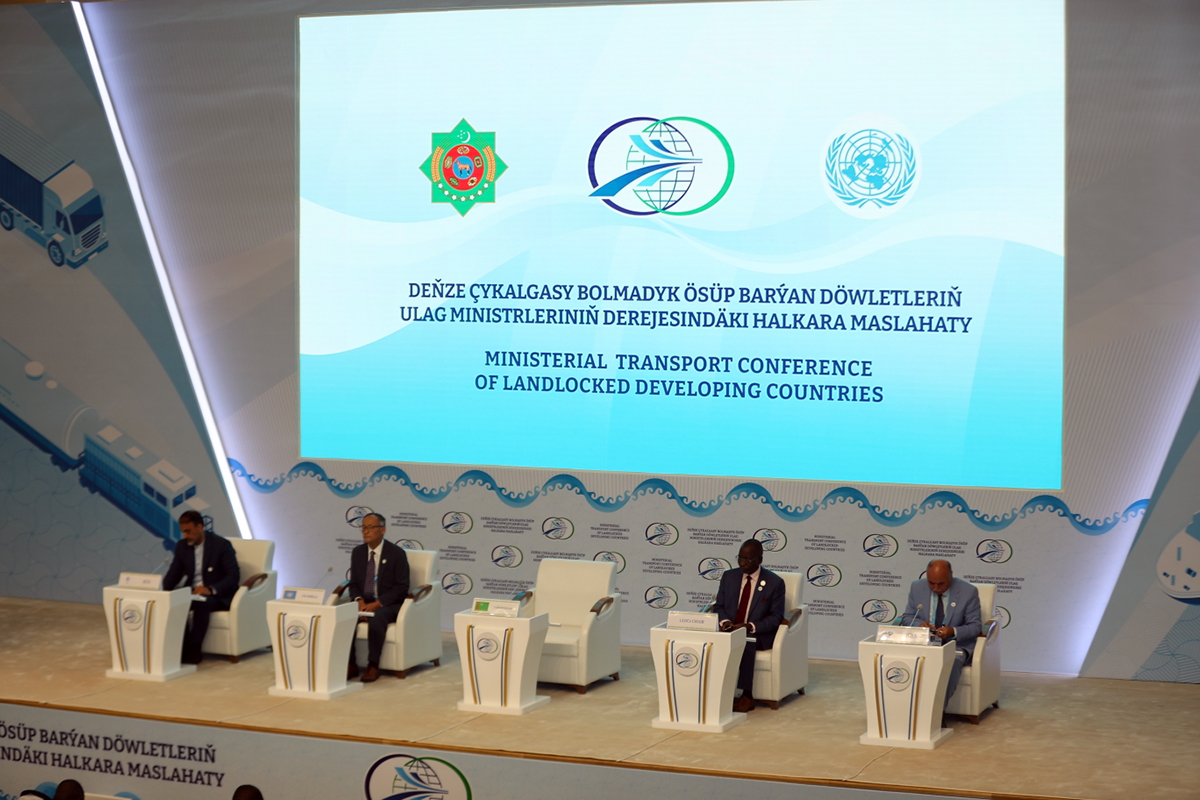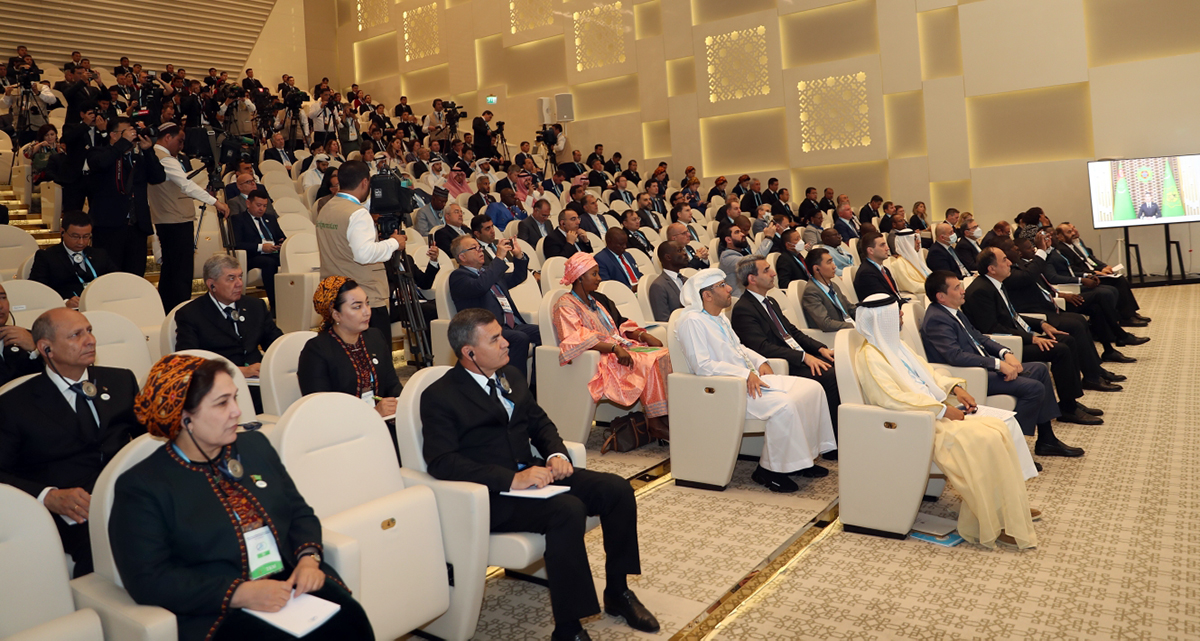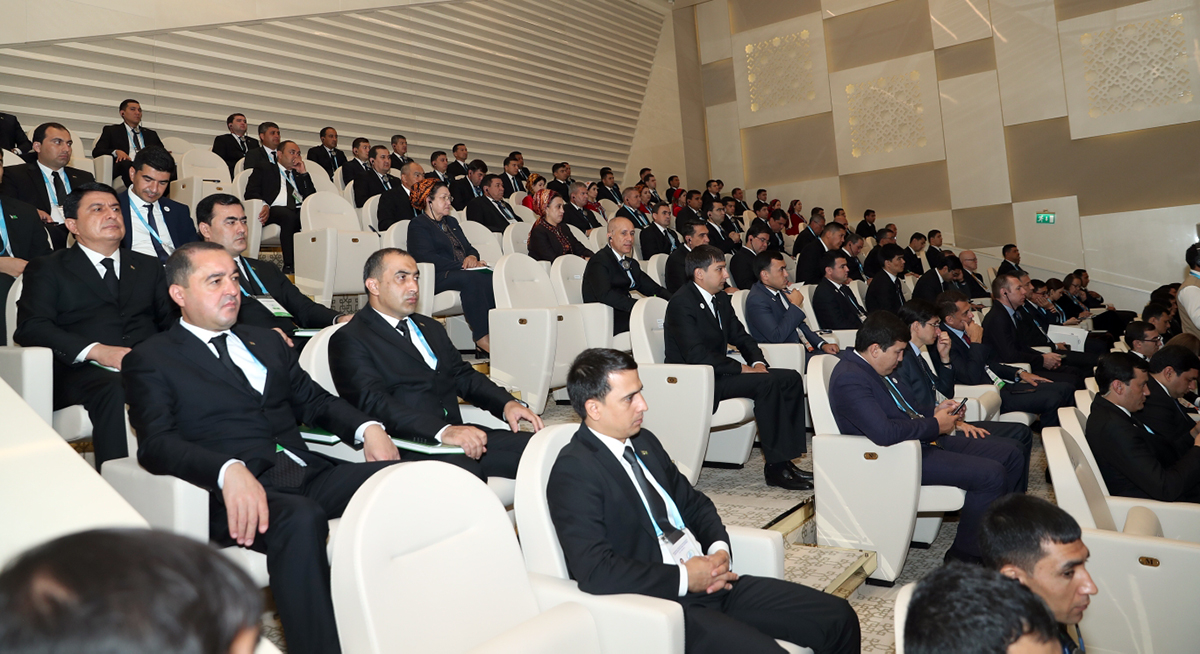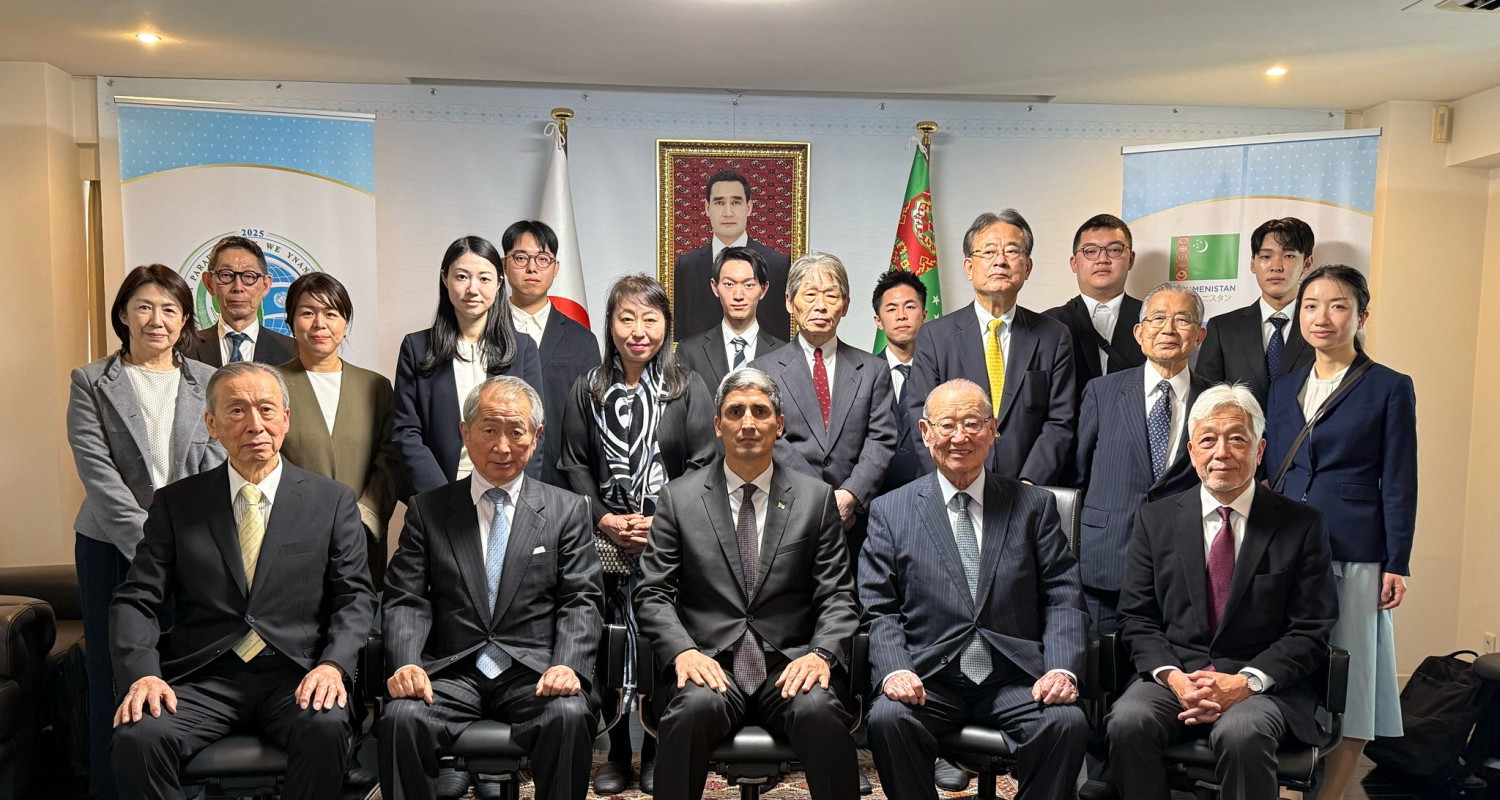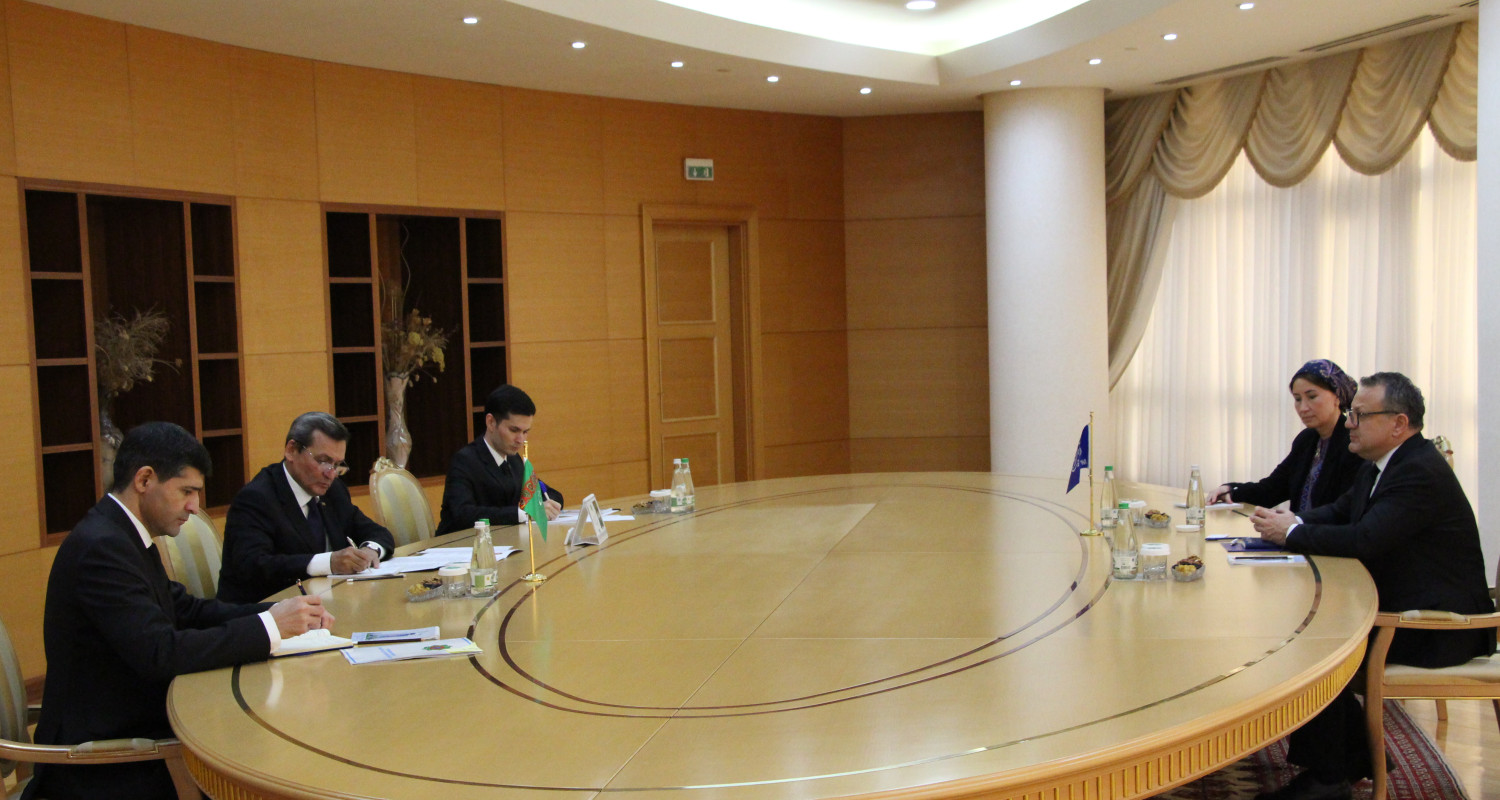This morning, the International Conference at the level of ministers of transport of landlocked developing countries in a hybrid format began its work at the Congress Center of the Avaza National Tourist Zone.
The forum, organized on the initiative of Turkmenistan under the auspices of the United Nations, was attended by delegations from about 40 states and over 30 international organizations. The current event also brought together heads of UN agencies, authoritative international, regional and subregional organizations and financial structures, representatives of the private sector, non-governmental associations, and academia. From the Turkmen side, members of the government, heads and representatives of a number of ministries and sectoral departments took part in the forum.
The main objectives of the Ministerial Conference are to review the progress made by landlocked developing countries (LLDCs) in the field of sustainable transport and related SDGs, to determine the impact of the coronavirus pandemic and other challenges in this context. Topics also include consideration of the key role of transport in post-COVID-19 recovery and climate change mitigation and adaptation.
The forum's objectives were the exchange of knowledge, experience and innovative approaches solutions to finance infrastructure after the coronavirus pandemic, ensuring its sustainability and stability, identifying recommendations and opportunities for improving the development and maintenance of transport infrastructure in the LLDCs, expanding international support in the field of transport and cooperation strengthening in this area in the interests of LLDCs. These recommendations are expected to focus on accelerating the achievement of the SDGs and will be presented at the Third United Nations Conference on LLDCs in 2024.
As is known, the idea of holding this forum in our country was put forward by Turkmenistan and enshrined in the Resolution of the UN General Assembly adopted in 2021.
The start of the forum was preceded by an exhibition presented in the lobby of the Congress Center in an electronic format, demonstrating the capabilities of landlocked states, as well as the achievements of the domestic transport and communication complex.




